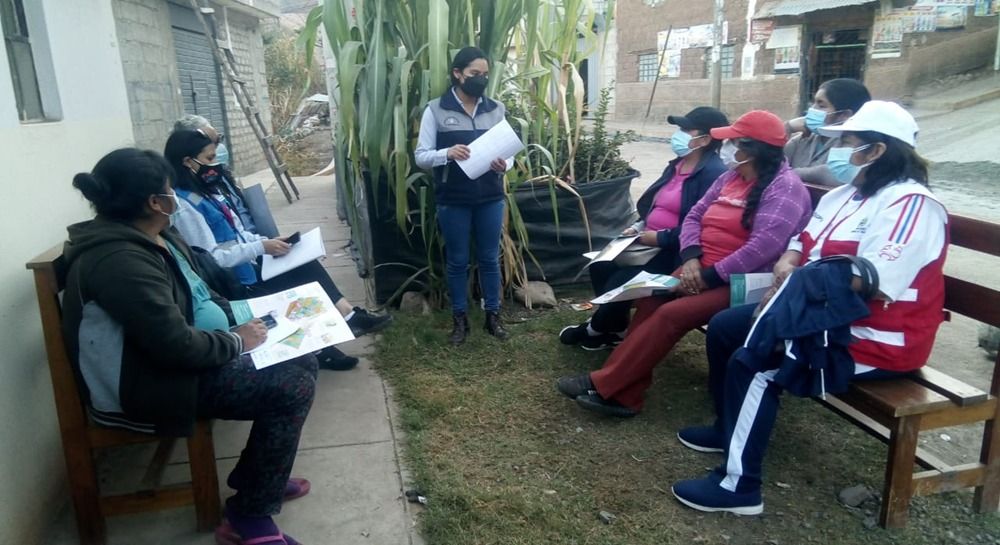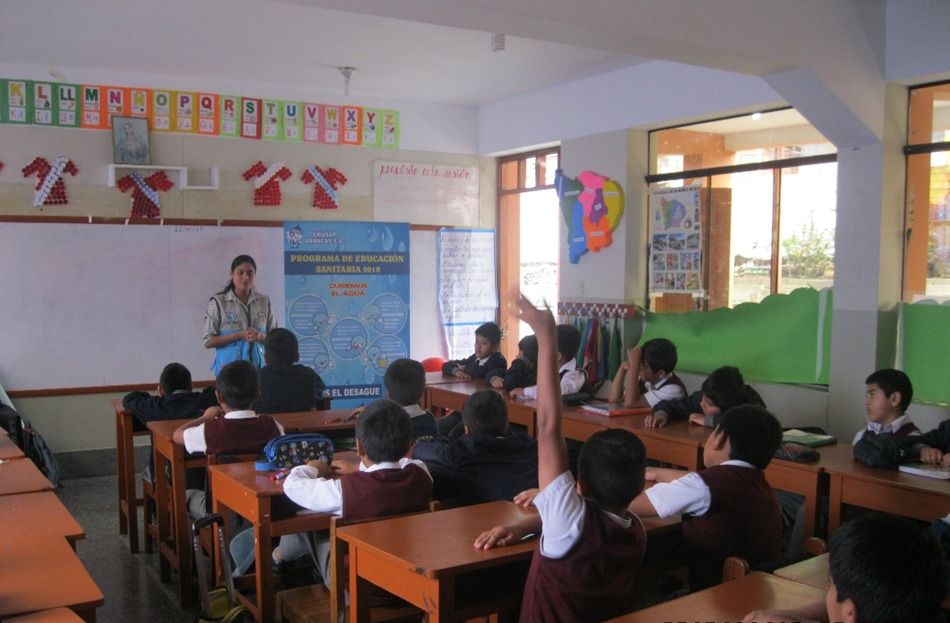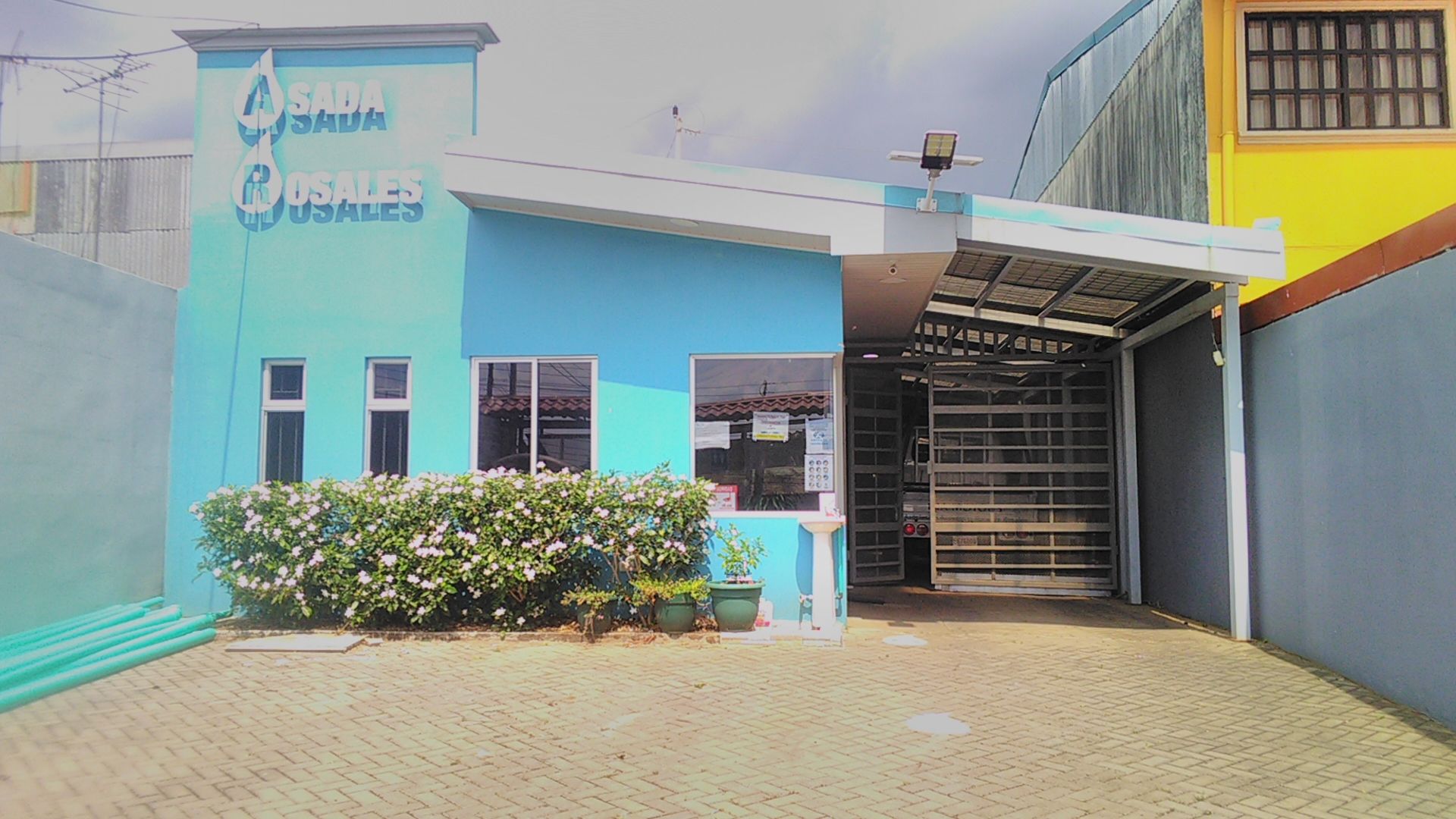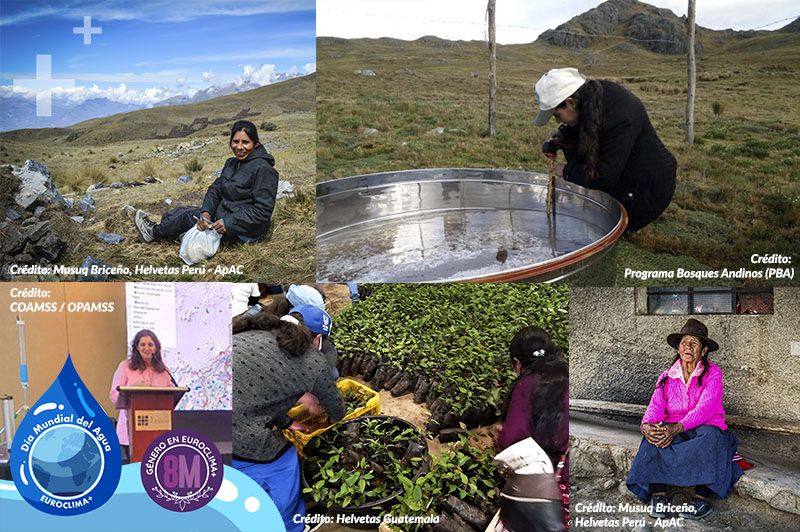From EUROCLIMA's Urban Water projects, women leaders who are committed to the integrated management and preservation of water resources.
From the Urban Water projects of EUROCLIMA+, a European Union programme, we work to implement gender mainstreaming approaches that guarantee and promote the active and fair participation of women in the management of water resources. These are some of the stories of participants and technicians working to ensure a safe, sustainable and quality water supply.
The Municipal Water and Sanitation Department of San Pedro Sacatepéquez in Guatemala was a very small unit some 15 years ago, but in recent years it has grown a lot: it now has 35 staff, of which only six are women, one of them, Amalia Navarro, its coordinator.
It has not been an easy task to become the coordinator of this department, which aims to provide quality and quantity of water to more than 10,000 inhabitants of the municipality. As her numbers show, the balance of women's participation in these types of functions continues to be low. However, Amalia stresses that progress has been made, and that the outlook for the future is favourable: "Historically, there has been a generalised idea that women 'cannot lead', and what we really need are more spaces and more opportunities to demonstrate our capacities," she says.
Amalia works directly with the Urban Waters of the Marques Valley project in the Urban Water sector of EUROCLIMA+, implemented by the Spanish Agency for International Development Cooperation (AECID) and the French Development Agency (AFD), and mentions how this project works closely to turn women not only into leaders of change, but also into guardians of water. In addition to the Municipal Water and Sanitation Department, the project is in coordination with the Municipal Women's Directorate, which is directly related to women's associations, an inter-institutional work that allows for the implementation of initiatives such as the 'water harvesters', through which women harvest water as a reserve in case of floods, generating opportunities for awareness-raising and empowerment.
But Guatemala is not the only country in which the work for inclusion and equity has turned women into guardians of water resources. In Peru, where the Water for Abancay project is being implemented, awareness-raising and empowerment workshops have led to more and more women participating in water harvesting, with the construction of qochas, small ponds for collecting rainwater, a job that was previously done only by men, as Naysha Kari Damian, a community leader and consultant for CEDES on the project, reports.
“Knowing where the water comes from, beyond the catchment process, has motivated them to become actively involved in this process, in which only men used to participate”.
 Training and awareness-raising sessions for women in Peru. Credit: EMUSAP Abancay
Training and awareness-raising sessions for women in Peru. Credit: EMUSAP Abancay
Naysha began working as a volunteer for the Empresa Prestadora de Servicio EMUSAP Abancay, implementing campaigns on the importance of responsible and sustainable water use. She now sees how these campaigns are paying off and continue to be strengthened with the implementation of Water for Abancay:
"This year we will hold the competition for women and the responsible use of water in Abancay, because we have seen that with these initiatives, led by the project, the water resource, the importance of its quality and its service to the population is better valued, and the contribution of women in the proper management of water resources is recognised".
With awareness-raising and empowerment, she says, mindsets have been transformed and women have become increasingly aware of their fundamental role in both protecting water resources and combating climate change.
 Naysha trains students on sustainable water use.
Naysha trains students on sustainable water use.
Credit: EMUSAP Abancay
Urban Waters of the Marquense Valley and Water for Abancay and the Communities are implemented by HELVETAS Swiss Intercooperation. In Peru, the consortium in charge of the project actions is led by the National Superintendence of Sanitation Services (SUNASS) in partnership with Helvetas Peru, the Sanitation Service Provider (EPS) Emusap Abancay, and the local NGO Cedes Apurimac. In the case of Guatemala, the project is implemented in partnership with the municipal governments of the five beneficiary municipalities.
Making the invisible visible
EUROCLIMA+, the European Union's cooperation programme, has among its lines of action to incorporate gender equality and promote inclusion for a green, fair and egalitarian future. This implies actively involving women in the initiatives, from all axes, because, as these 'guardians' of water mention, women disproportionately face the effects of climate variability: "In the water issue, women are fundamental because, from the moment we get up, we use water. Without water nothing can be done, we women are the ones who use water the most, in our homes, with our families, and getting involved allows us to double our impact, to reach new regions and new people," says Amalia.
This is not so easy, since, says Amalia, the role of women in the fight against climate change tends to be invisible and undervalued, mainly because it was not very common in the past to see women leading actions to tackle climate change.
 ASADA Rosales in Costa Rica, beneficiary of the Resilient ASADAS project of EUROCLIMA+. Credit: ASADA Rosales
ASADA Rosales in Costa Rica, beneficiary of the Resilient ASADAS project of EUROCLIMA+. Credit: ASADA Rosales
Xinia Carrillo is the administrator of the Rosales Communal Aqueduct (ASADA) in Costa Rica, which is responsible for guaranteeing safe and quality water for 779 users, and which benefits from the EUROCLIMA+ Resilient ASADAS project, implemented by the Costa Rican Institute of Aqueducts and Sewers (AyA), Cedarena and ARESEP. When she started working at her ASADA, Xinia was the only woman on the Board of Directors. Now that she has been appointed as administrator, she says that the picture is different - there are now four women and three men on the board, which shows that progress has been made - but the challenge remains: Xinia says that it is difficult to be 'believed' in the community: as the ASADAS were previously administered by men, it has not been easy to gain respect and make a name for herself and her knowledge.
"Climate change exacerbates existing inequalities in our communities, and that is why it is crucial for us women to be community leaders, to work as a team and inspire other women that it is possible to fulfil any role, in any area. We can do this," concludes Xinia. This is backed up by a United Nations report, which revealed in 2021 that 80 per cent of people displaced by disasters and climate-related changes worldwide are women and girls.
The theme for this year's World Water Day is to make the invisible visible in relation to groundwater management and the vital role it plays in serving communities. However, this phrase also applies to some issues that tend to be invisible, including women's participation and the importance of involving women in decision-making processes and the implementation of actions to address climate change.
Making the invisible visible is, in this case, a way not only to show that women have a voice and a vote in these initiatives, but also to inspire other women to become leaders and guardians of water.
Likewise, the 2022 edition of the Commission on the Status of Women has as a priority theme to highlight the importance of gender equality both in the fight against climate change and in the protection of the environment and disaster risk reduction, demonstrating that more and more efforts are being made to make the invisible visible.
For more women in science, water and the fight against climate change
For Xinia, one of the main added values of the work that the Resilient ASADAS project has been carrying out with the 60 beneficiary ASADAS are the spaces for exchanging experiences and knowledge, through which she has met women and men who, from different ASADAS, work and implement initiatives that contribute to the proper management of water resources. For her, this is one of the keys to achieve a more active participation of women: to know inspiring stories, success stories of women who have managed to transform their environments. As an administrator, she hopes to inspire many more women and show them that it is possible to lead and implement change in their communities.
From the Water Management in the AMSS project, which is implemented in El Salvador through COAMSS / OPAMSS, Laura Gil, a specialist in Groundwater Hydrology at the Ministry of Environment of El Salvador, agrees with Xinia that leading by example is a way to increase women's participation, but emphasises that this also requires the generation of new opportunities: "More incentives are needed, more awareness of the work being done in technical areas and the work being done so that there is more interest in science and that women have relevance in all fields.".
These water guardians not only represent success stories of working with their community for the preservation of water resources, but they become an inspiration for more and more women to lead and implement initiatives to tackle climate change, but they also agree that there must be more and more opportunities for inclusion and more spaces to ensure fair and equal participation in the green transition, a commitment for the EUROCLIMA+ Programme, and for the Urban Water sector.
EUROCLIMA+ sector Water management with an urban resilience perspective
Through this sector of the EUROCLIMA+ programme implemented by the Spanish Agency for International Development Cooperation (AECID) and the French Development Agency (AFD), a total of seven projects will be implemented. For more information on each project, please visit: https://www.euroclima.org/en/water
About EUROCLIMA+
EUROCLIMA+ is a programme funded by the European Union and co-financed by the German federal government through the Federal Ministry for Economic Cooperation and Development (BMZ), as well as by the governments of France and Spain through the Ministry of Foreign Affairs, European Union and Cooperation.
The Programme's mission is to reduce the impact of climate change and its effects in 18 countries in Latin America and the Caribbean, promoting mitigation, adaptation, resilience and climate investment. It is implemented according to the "Spirit of Team Europe" under the synergistic work of seven agencies: the Spanish Agency for International Development Cooperation (AECID), the French Development Agency (AFD), the Economic Commission for Latin America and the Caribbean (ECLAC), Expertise France (EF), the International and Ibero-America Foundation for Administration and Public Policy (FIIAPP), the German Society for International Cooperation (GIZ) GmbH, and the UN Environment Programme (UNEP).
